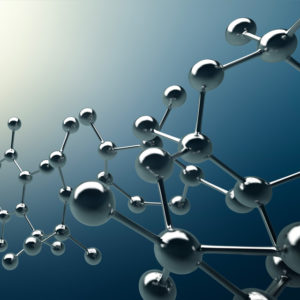Electrochemical Analysis
Home » Our Techniques » Electrochemical Analysis
Electrochemical analysis is a collection of techniques that use electrical stimulation to analyze the chemical reactivity of a sample surface or a solution. Oxidation and reduction reaction rates are controlled and measured by a potentiostat, connected to electrodes submerged in an electrolyte. Electrochemical analysis is used for e.g. the study of corrosion, i.e. degradation of a material due to reaction with its environment. The test conditions (i.e. temperature, composition of electrolyte, exclusion of oxygen, …) can be varied to gain insight in the corrosion mechanism in specific environments. Electrochemical analysis is useful for materials selection during the design phase or prediction of failure mechanisms and lifetime during operation.
In electrochemical corrosion studies, the working electrode (WE) is the material under investigation, which is oxidized in a controlled way. The complementary reactions to maintain charge balance take place at a -usually inert- counter electrode (CE) (e.g. platinum). A reference electrode (RE) is used to control the potential close to the WE surface. Various techniques are used to measure corrosion resistance.

In potentiostatic measurements, the potential of the WE is constant and the current is monitored as a function of time. In potentiodynamic measurements, the potential is usually ramped up slowly and the current as a function of voltage is measured. The current-voltage curve around the corrosion potential (the potential where current is zero) can be fitted (Tafel analysis), giving the corrosion rate in equilibrium. Scans to higher voltage can be used to determine passivation and passivation breakdown. Cyclic voltammetry (CV) is a special form of potentiodynamic analysis, where the voltage is swung up and down repeatedly.
In electrochemical impedance spectroscopy (EIS), an AC voltage around zero or non-zero offset is applied over usually a large frequency range (sub-Hz up to MHz). EIS provides information on time-dependent phenomena like ion conduction in dielectric films, solid state chemical reactions, dipole relaxation, and so on.
Ideal Uses of Electrochemical Analysis
- Corrosion resistance of materials in specific environments
- Quality of corrosion-resistant coatings or passivation
- Efficiency of corrosion inhibitors in cooling water circuits
Strengths
- Fast compared to reliability testing
- Quantitative and reproducible information about corrosion rate and analysis of corrosion mechanism
Limitations
- Complete data interpretation often requires additional information (e.g. from surface analysis or microscopy)
- Sample size and geometry is limited; full product testing is often not possible
Would you like to learn more about using Electrochemical Analysis?
Contact us today for your Electrochemical Analysis needs. Please complete the form below to have an EAG expert contact you.